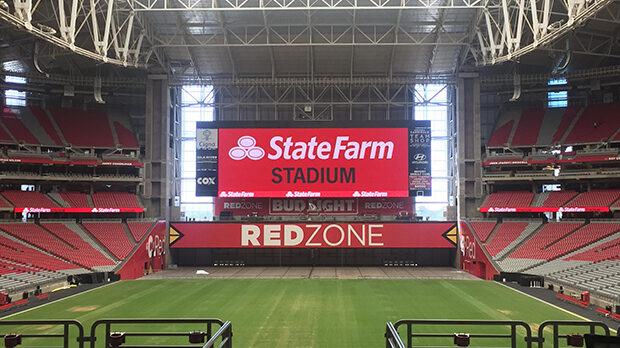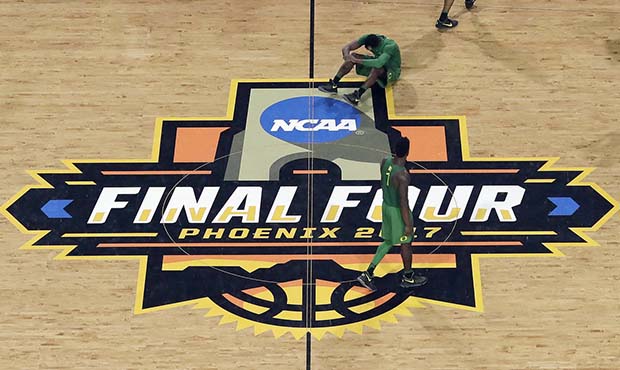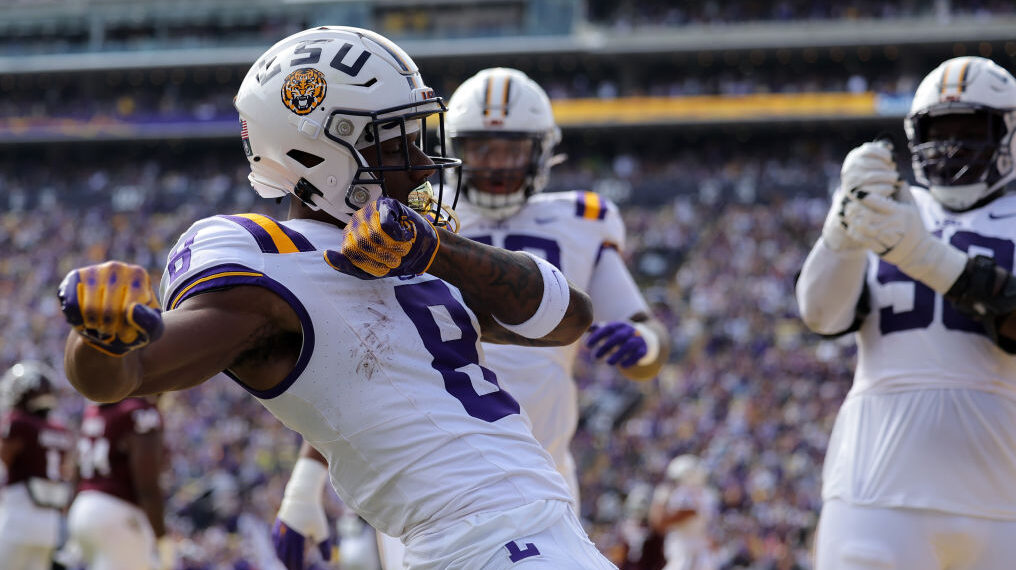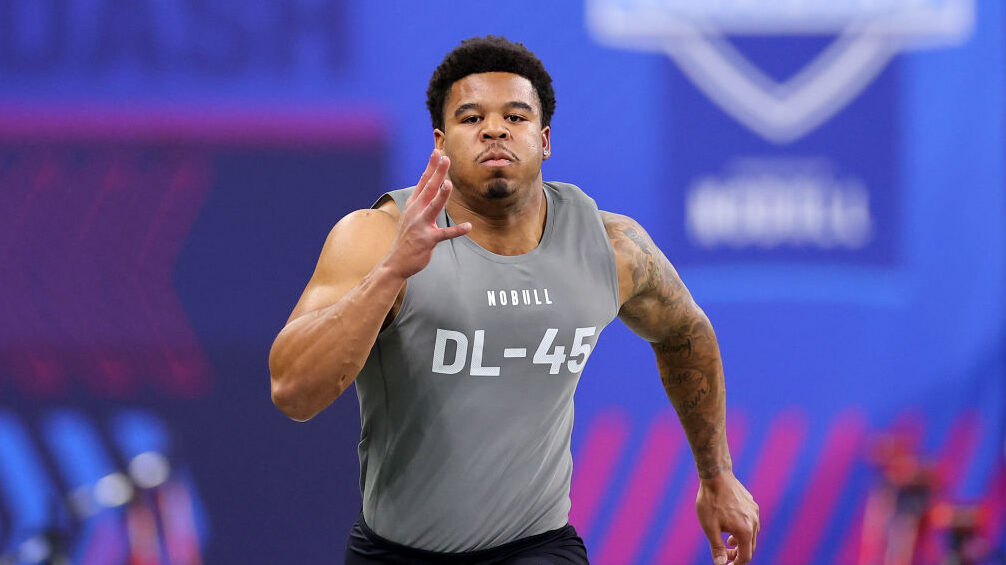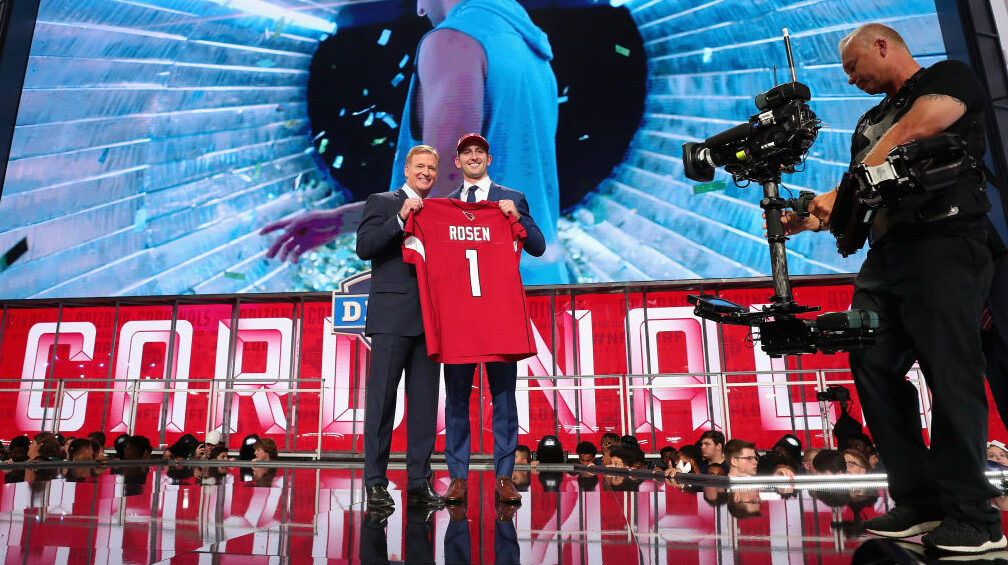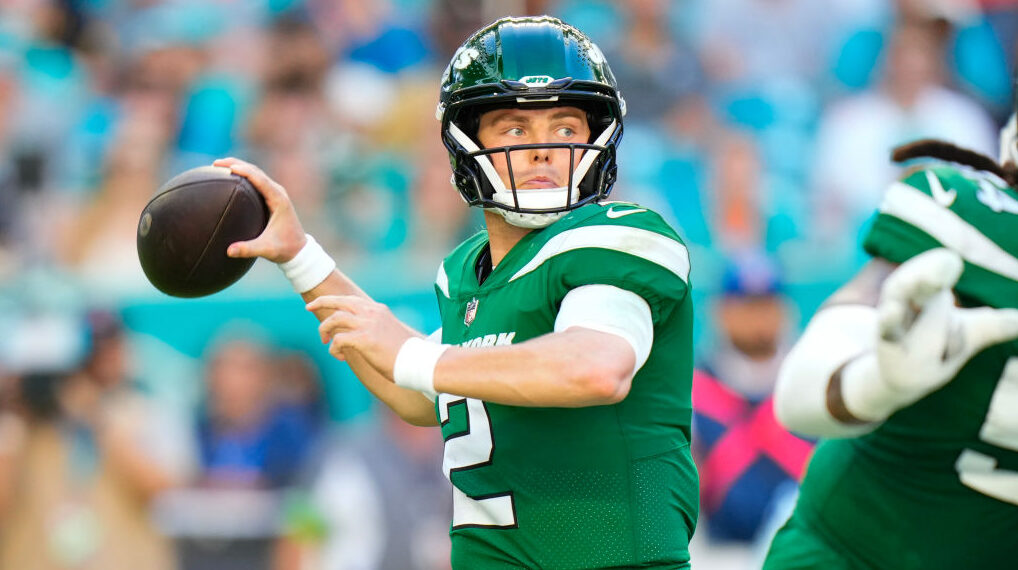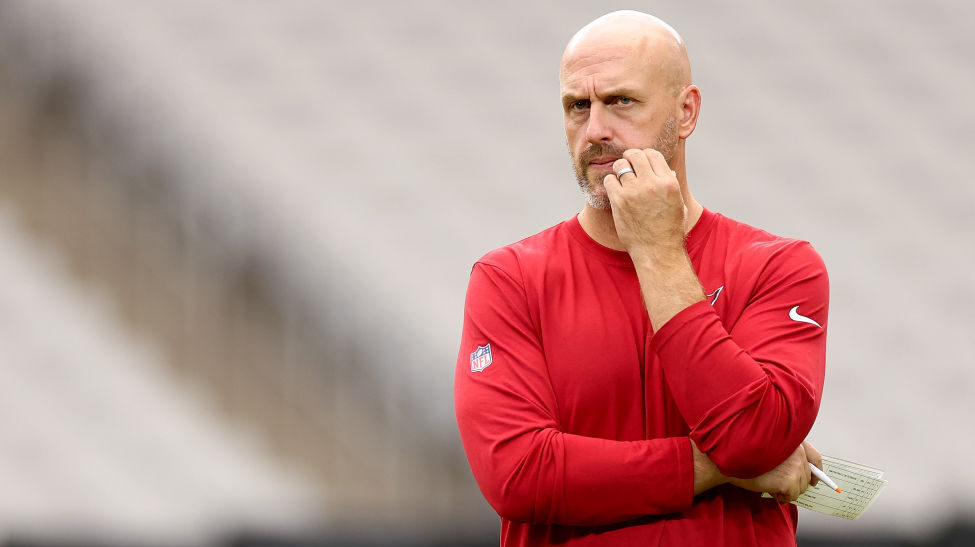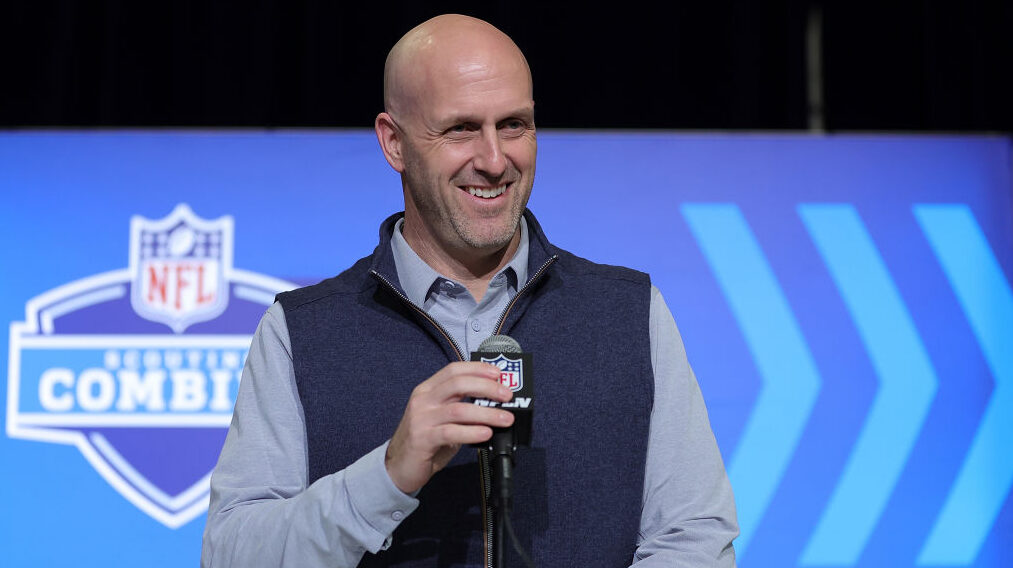Gov. Doug Ducey talks Bradford-Rosen debate, stadiums and Arizona sports
Sep 21, 2018, 8:49 AM | Updated: 10:09 am
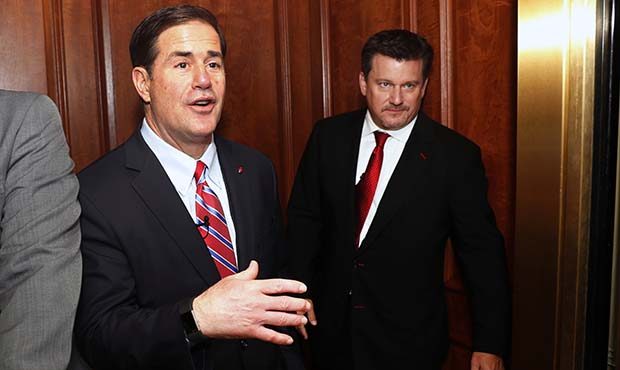
(AP Photo/John Bazemore)
(AP Photo/John Bazemore)
From a business perspective, it’s been a successful last few years for the Phoenix metro area’s sports scene. Dating back to 2015, Arizona Gov. Doug Ducey has watched a Super Bowl, a college football title game and an NCAA basketball Final Four take place all at the home of the Arizona Cardinals, State Farm Stadium.
The future looks good, too. The stadium will host the Super Bowl in 2023, national College Football Playoff semifinals for the 2022 and 2025 seasons, and a 2024 Final Four.
From a business perspective, the future is bright in the state of Arizona, even if it could be a predictably rough 2018 on the field.
Ducey joined Doug & Wolf on 98.7 FM Arizona’s Sports Station Friday to discuss the current sports scene, the impact of venues like State Farm Stadium and the passing of Sen. John McCain. Below is an edited transcript of his interview.
We’re going to stick it to you right from the beginning from a political standpoint: Josh Rosen or Sam Bradford. Which campaign are you behind?
Ducey: I defer to Steve Wilks on this. We’re playing Chicago this weekend and Sam Bradford is a great athlete, he’s had a great career. Something’s up with the Cardinals. I think it’s more than the quarterback. I think we got to give Sam one more start. My concern is, Josh is our future quarterback. We’re talking about him as a franchise quarterback, as a future Kurt Warner. We know something’s wrong. We know Steve Keim will make adjustments. We think we have a real winner in this new head coach. But yeah, the last couple weeks have been concerning.
Talk a little bit about State Farm Stadium. Some of the events that have been scheduled, you got to be excited.
Ducey: We’ve got another Super Bowl coming, we’ve got another college football championship, we’ve got another NCAA Final Four. This is something where Michael Bidwill, the owner of the Cardinals, has been a huge help to me as governor. He loves to pitch the state, he loves to get in front of these decision-makers. And I think that’s a competitive advantage for our state that we have a governor that wants to make this pitch and we’ve got leaders in the private sector like Michael Bidwill.
State Farm’s made a huge investment in the state of Arizona. They’ve got thousands of employees, the investment they’ve made in Tempe, right in the shadow of Sun Devil Stadium. It’s a real positive.
Should taxpayers be paying for stadiums and arenas? You just described State Farm Stadium of how outstanding it’s been for the region. We have a D-backs issue. We have a Suns and Coyotes issue. We have the downtown versus tribal land issue. We have (a) going-out-to-suburbs issue. You care about the whole state, but what’s the right way for us to stay competitive but at the same time alleviate taxpayers’ concerns?
Ducey: I do care about the whole state and we’re fortunate in this state that we have the four major sports … likely we’ll have soccer. And I think it differentiates the state. What’s one of the biggest differences between Arizona and New Mexico? What’s one of the biggest differences between Phoenix and Albuquerque? I would say it’s 1968 when (former Suns owner) Jerry Colangelo and the Phoenix Suns came here and we became a major league sports town; and the Cardinals follow, and the Diamondbacks follow and the Coyotes follow.
So the state has made the decision that they did want those stadiums and taxpayers got involved, but now we have those stadiums, and I think — and we’ve got a booming economy and we’ve got very successful owners. I think that the taxpayers should get out of the stadium business. The owners and the communities — and you can work with local municipalities — cities and counties on things on relocation and when there’s different design changes we need. But we do have four major sports — likely five very soon, I’d like to see that — and one of the fastest growing states in the country.
Talk a little bit about former Senator John McCain of course and the passing of John McCain and his legacy in the state.
Ducey: Well John McCain is an irreplaceable United States senator. He was an Arizona treasure. Many of us are from some place else, myself included, and when we travel and tell them we were from Arizona, they’d know two things: John McCain and the Grand Canyon. Arizona without John McCain is like picturing Arizona without the Grand Canyon, it’s just not natural.
He was Arizona’s No. 1 sports fan. He went to the games, he watched games, he cheered on the teams and was real friends with the players. Larry (Fitzgerald) eulogized him at the funeral and Larry did incredible.
I think John McCain would have a real issue with where we are right now in terms of, we want to turn the corner on sports. We’ve kind of tasted all this opportunity. We tasted the “All Or Nothing” season for the Cardinals, we saw that signature win for the Sun Devils — we were knocking right on the door and Herm beats Michigan State last week, which gives us a lot of hope. The Diamondbacks, we’re six behind with eight to go, so we can still hope for miracles. How about the Suns and the No. 1 draft pick? I want to say the future is bright.
I was channeling John McCain before the show when I said, he used to love to say, ‘It’s always darkest before it’s completely pitch black.’ I think we might be in for that this year.
Why are you positive?
Ducey: You want to commit to things you can deliver. That’s questions for some of the coaches and GMs that come in here. But I do think it was a big victory against Michigan State that Herm showed us. We’ve seen what Cardinals can do and we know the ownership and leadership and the commitment that the franchise has to winning. The Diamondbacks are knocking on the door — they led this entire year. And who would you rather be right now than the Phoenix Suns in terms of young talent? I do think there’s a lot to be hopeful and optimistic.
The business I’m in, it’s about delivering results. Nowhere is that more evident than in sports. I say sometimes that people wake up in the morning to see the shortcomings of the people on the front page and then they see the accomplishments of the men and women on the sports page. So that’s what I like to look at and that’s what I’m hopeful for.


